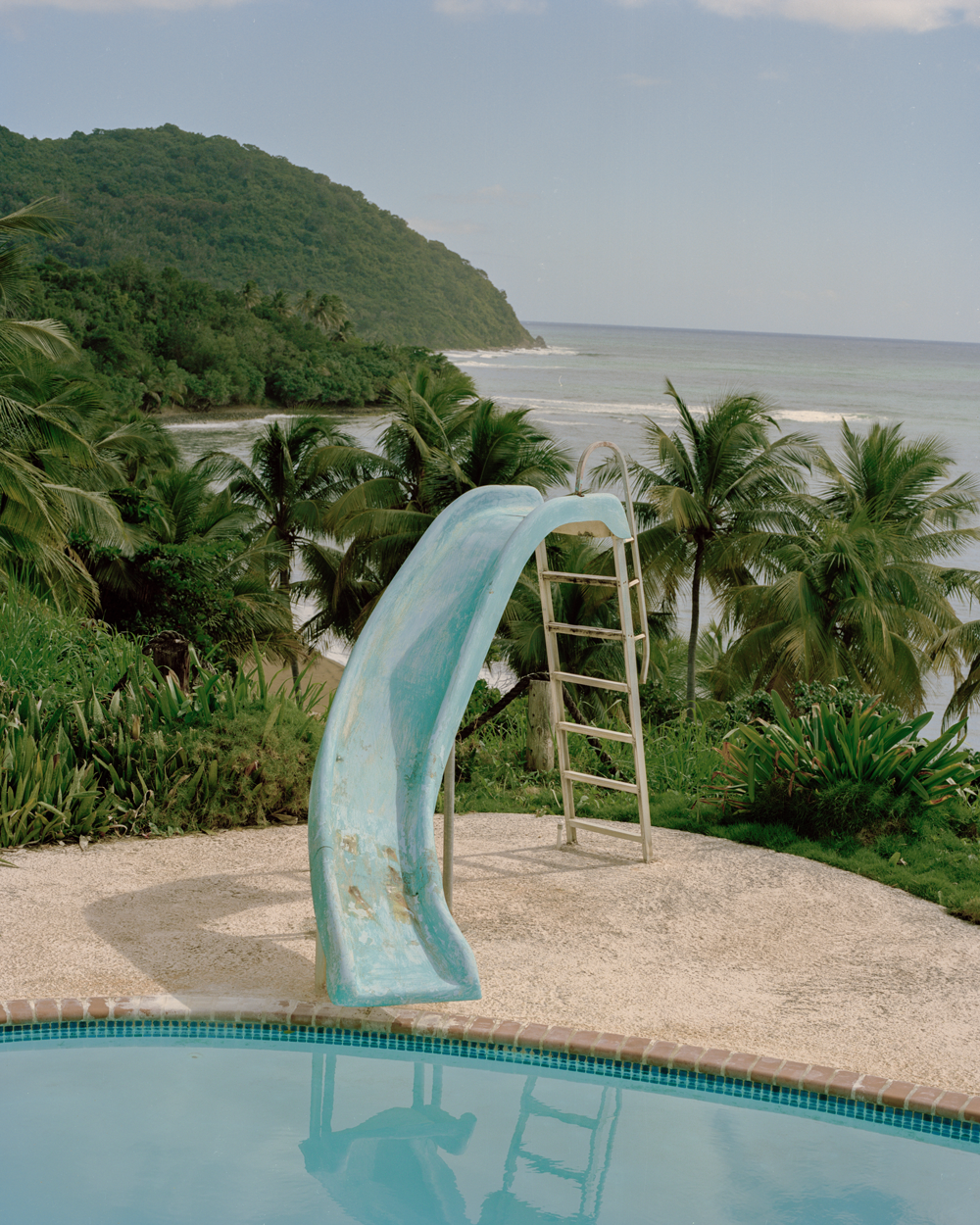5. Isla Imaginaria

Image courtesy of Chris Gregory
Isla Imaginaria explored notions of paradise and landscape in the Caribbean island of Puerto Rico. Based on Édouard Glissant’s Poetics of Relation, Isla Imaginaria offers a pathway to reflect on a shared space or a world solidarity. What does it mean to inhabit what Glissant defines as a “commonplace” open to the entanglement of worldwide relations? This commonplace could be defined as a space for reverberation that makes us relate to each other. For Glissant the Caribbean sea “has always been a place of encounter and connivance.” It is a space of encounters and departures where cultures blend; it is always in flux. Through the Western and American gaze, Caribbean islands are often referred to as tropical paradises, sanctuary spaces, and places to escape. But they are also places of contradiction where invisible forces come and go, and aspiring Utopian futures are all part of an imaginary. But imaginary for whom and how do we share such an imaginary? What does it mean to belong in a place like this, specifically in the context of the Caribbean reality today? And what does it mean to have “the right to opacity” in a Puerto Rican context? This exhibition questions whether we can share such an imaginary of uncertainty, and also addresses today’s urgent issues of displacement, erased histories, and forced migrations, while exposing the failure of the colonial structure imposed by the U.S. government.
Artists: Sofía Gallisá Muriente, Natalia Lassalle-Morillo, Erika P. Rodríguez, Chris Gregory, Karlo Andrei Ibarra, Lionel Cruet and Edra Soto
This exhibition also included a public program in which I invited Erika P. Rodríguez, scholars Ren Ellys Neyra and Eduardo Javier Rivera Pichardo to talk about their practices regarding their academic works in relation to Isla Imaginaria. Rivera Pichardo talked about a wide range of perspectives on Modernity/Coloniality and its multiple layers and impact to subjectivity. Ellis Neyra transpported us to El Paseo de Diego in Río piedras, Puerto Rico and shared experiences on performance, sounds and caribbean/brown/queer feelings and commonplaces. Rodríguez talked about her journey through La Ruta del Progreso and her experience documenting such route.
This public program was possible thanks to the generous support of the SVA Alumni Society Scholarship Award from the School of Visual Arts.